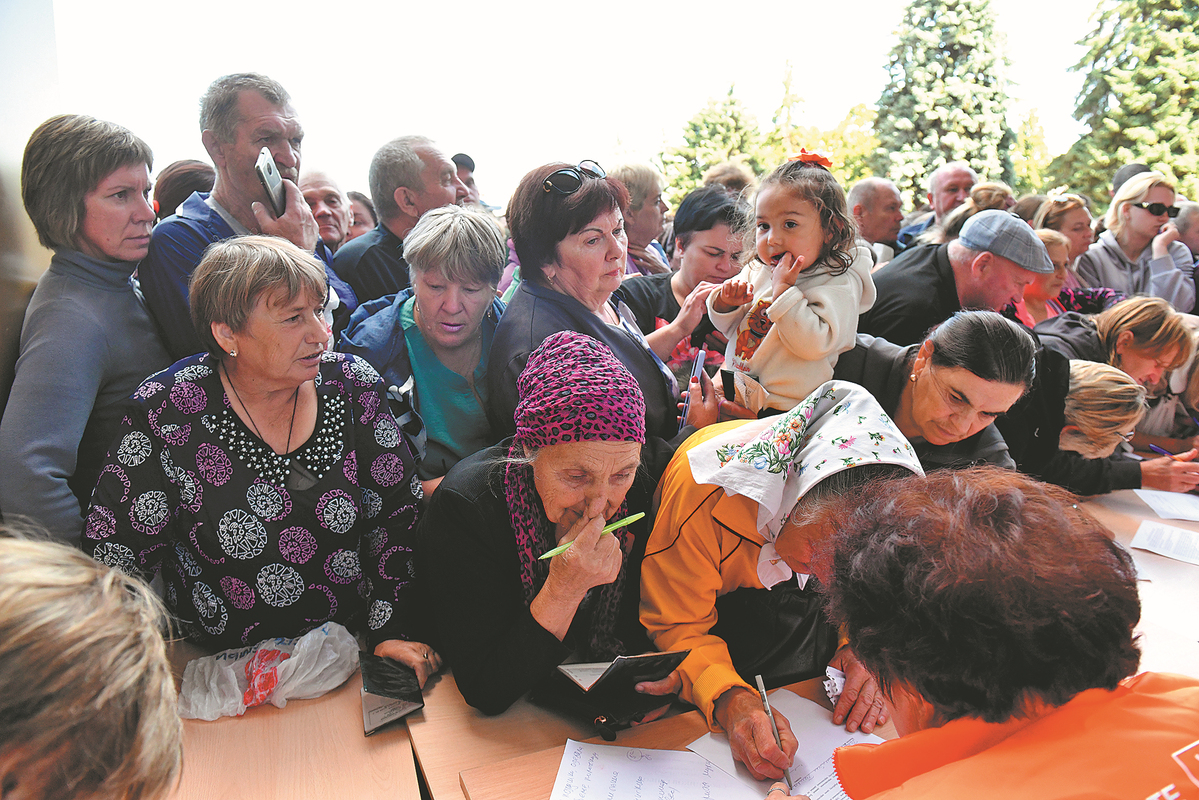Evacuation of thousands more begins from Kursk


Russia began evacuating thousands more people from its border regions on Thursday after Ukraine said it was advancing deeper into the country in a lightning incursion aimed at forcing Moscow to slow its advance along the rest of the front.
The biggest foreign attack on sovereign Russian territory since World War II unfurled on Aug 6 when thousands of Ukrainian troops smashed through Russia's western border.
Supported by swarms of drones, heavy artillery and tanks, Ukrainian units have since carved out a sliver of Russia and battles were continuing along a front about 18 kilometers inside Russian territory on Thursday.
Authorities in the Kursk region have decided to evacuate its Glushkov district, acting Governor Alexey Smirnov said late on Wednesday.
The district directly borders Ukraine and has a population of about 20,000 people. Smirnov said on Telegram that police and other state bodies would coordinate the evacuation process.
Russian officials said at least 200,000 people have been evacuated from the border regions following the attack.
The Ministry for Emergency Situations said more than 8,000 residents of Kursk, including more than 2,500 children, currently stay in temporary accommodation centers.
The work to temporarily resettle people and provide them with everything they need continues, the ministry said.
Most residents of Kursk districts bordering Ukraine have been evacuated to safety, the ministry added.
Russia's Defense Ministry said on Thursday its forces had recaptured a village in Kursk after it was seized by Ukraine in its cross-border incursion.
In the first such claim since the start of the Ukrainian offensive more than a week ago, the ministry said the army had "completed destruction of the enemy and restored control of the settlement of Krupets".
Russian forces were continuing to "repel the attempted incursion of the Ukrainian armed forces", it said.
Moscow said that using aircraft, artillery and drones, its forces had "foiled the latest enemy attacks", including attempts to break through deeper into Russian territory using mobile groups.
As for the neighboring region of Belgorod, Defense Minister Andrei Belousov said on Thursday that Russia will send additional forces to defend the border region.
The Russian army has prepared "concrete actions" to defend Belgorod from Ukrainian attacks, including "the allocation of additional forces", Belousov was quoted by the ministry as saying.
In a video published on Thursday by Ukrainian President Volodymyr Zelensky, Ukraine's top commander Oleksandr Syrskyi said Kyiv had set up a military commandant's office in the occupied part of the Kursk region, where he said his forces were still advancing and had taken up to 1.5 kilometers in the past 24 hours.
Kyiv's forces had advanced 35 km into Kursk since launching the incursion, Syrskyi added.
'Buffer zone'
Interior Minister Igor Klymenko said Ukraine would create a "buffer zone" in the region to prevent Russian cross-border strikes.
"The creation of a buffer zone in the Kursk region is a step to protect our border communities from daily hostile shelling," he said.
In his nightly address on Wednesday, Zelensky referred to the growing number of Russian prisoners of war taken in Kursk who could be exchanged for Ukrainian fighters.
"Our advance in Kursk is going well today — we are reaching our strategic goal," he said. "The 'exchange fund' for our state has also been significantly replenished."
Ukraine's surprise attack on Kursk has been seen by military analysts as an attempt to force Russia to divert forces from the eastern front, where Russian forces have taken control of a village that is just 16 kilometers from the city of Pokrovsk, which sits abreast of major roads that supply Ukrainian forces in the area.
In a daily briefing, the Russian Defense Ministry said its army units "liberated the village of Ivanovka "in the Donetsk region.
Russian forces have been inching toward Pokrovsk for months, taking a string of tiny villages in recent months as they seek to reach the outskirts of the city.
A Ukrainian official told AFP over the weekend, on condition of anonymity, that the incursion had little effect on fighting in the east but that the "intensity of Russian attacks" had decreased slightly.
Agencies contributed to this story.

































